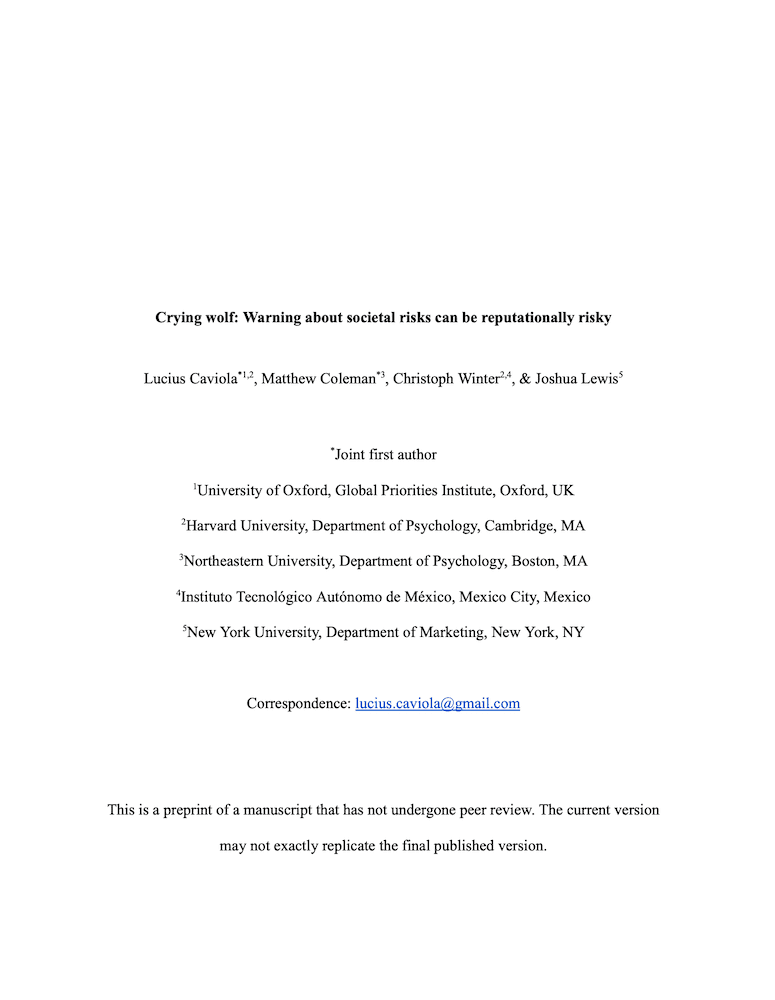Crying wolf: Warning about societal risks can be reputationally risky
Lucius Caviola (Global Priorities Institute University), Matthew Coleman (Northeastern University), Christoph Winter (ITAM & Harvard) and Joshua Lewis (New York University)
GPI Working Paper No. 15-2024
Society relies on expert warnings about large-scale risks like pandemics and natural disasters. Across ten studies (N = 5,342), we demonstrate people’s reluctance to warn about unlikely but large-scale risks because they are concerned about being blamed for being wrong. In particular, warners anticipate that if the risk doesn’t occur, they will be perceived as overly alarmist and responsible for wasting societal resources. This phenomenon appears in the context of natural, technological, and financial risks and in US and Chinese samples, local policymakers, AI researchers, and legal experts. The reluctance to warn is aggravated when the warner will be held epistemically responsible, such as when they are the only warner and when the risk is speculative, lacking objective evidence. A remedy is offering anonymous expert warning systems. Our studies emphasize the need for societal risk management policies to consider psychological biases and social incentives.
Other working papers
Moral uncertainty and public justification – Jacob Barrett (Global Priorities Institute, University of Oxford) and Andreas T Schmidt (University of Groningen)
Moral uncertainty and disagreement pervade our lives. Yet we still need to make decisions and act, both in individual and political contexts. So, what should we do? The moral uncertainty approach provides a theory of what individuals morally ought to do when they are uncertain about morality…
A Fission Problem for Person-Affecting Views – Elliott Thornley (Global Priorities Institute, University of Oxford)
On person-affecting views in population ethics, the moral import of a person’s welfare depends on that person’s temporal or modal status. These views typically imply that – all else equal – we’re never required to create extra people, or to act in ways that increase the probability of extra people coming into existence. In this paper, I use Parfit-style fission cases to construct a dilemma for person-affecting views: either they forfeit their seeming-advantages and face fission analogues…
Altruism in governance: Insights from randomized training – Sultan Mehmood, (New Economic School), Shaheen Naseer (Lahore School of Economics) and Daniel L. Chen (Toulouse School of Economics)
Randomizing different schools of thought in training altruism finds that training junior deputy ministers in the utility of empathy renders at least a 0.4 standard deviation increase in altruism. Treated ministers increased their perspective-taking: blood donations doubled, but only when blood banks requested their exact blood type. Perspective-taking in strategic dilemmas improved. Field measures such as orphanage visits and volunteering in impoverished schools also increased, as did their test scores in teamwork assessments…

